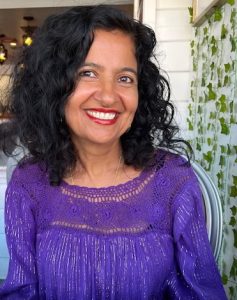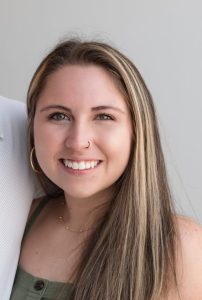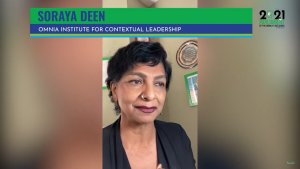Honoring the mothers—the survivors and activists—whose bravery inspires and fuels our movement
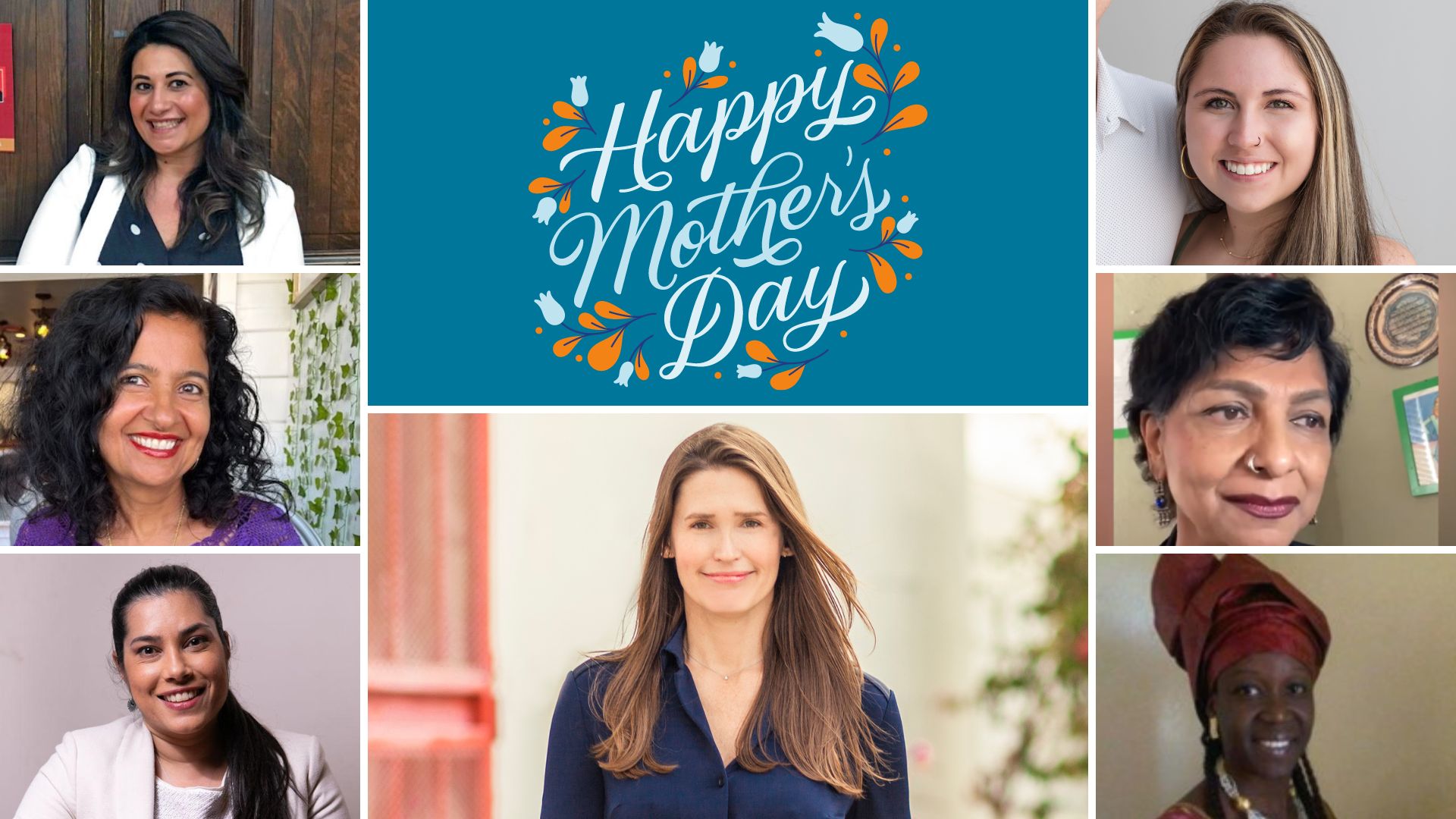
Published 5/5/2023
How does being a mother inspire survivors and activists? How do mothers feel about female genital mutilation (FGM), child marriage, and more?
To honor Mother’s Day this year, we want to share with you a compelling collection of empowering quotes from mothers we have featured in previous blogs.
These brave women tell their stories publicly to make a difference for the better.
Their stories are all different, but their driving force is the same: protecting children, theirs and others, from the abuses and dangerous ideologies that they themselves have survived or have some experience of.
Their voices remind us that even when progress is slow and times are hard, we must keep fighting—there is hope.
To start off, though, here is a quote from our Founder Ayaan Hirsi Ali’s ‘Letter to My Unborn Daughter’ (the entirety of which can be found in her 2010 book Nomad) that we think perfectly encapsulates the spirit of love and motherhood that shines through the quotes below:
“Life holds so much promise for you. Please take it with both your little hands, and live it well. Live, laugh, love, and give back with a broad grin.”
Happy Mother’s Day!
Jenny, FGM survivor and activist from Kentucky
“I decided to start talking about what happened to me for my two young daughters. The idea of any of my daughters going through the same pain is unbearable to me.“
From our 15th anniversary video, which you can view here. We also did an interview with Jenny for our blog, which you can read here.
Bayor Chantal Ngoltoingar, FGM survivor and activist originally from Chad
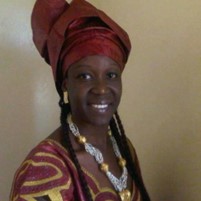 “[My daughter Amalia] died aged 12, and all because of birth complications caused by FGM… It is still hard for me to talk about Amalia. I grieved long and hard after her death and decided I wanted to leave Chad. I wanted to leave all the pain I had suffered far behind. So I moved to the U.S. to start afresh.
“[My daughter Amalia] died aged 12, and all because of birth complications caused by FGM… It is still hard for me to talk about Amalia. I grieved long and hard after her death and decided I wanted to leave Chad. I wanted to leave all the pain I had suffered far behind. So I moved to the U.S. to start afresh.
…
Writing [my book about my experiences] was first and foremost a form of therapy for me… [M]y story about the horrors of FGM might reach other girls, and empower them to escape it. Or, it might give other survivors the courage to speak up… I’m still alive, and my voice is no longer silenced.”
Read the full interview with Bayor here.
Davinder Kaur, forced marriage survivor and activist originally from the UK, now living in California
“I managed to escape [my forced marriage] early on and am living my life to the full as a free woman and the mother of three beautiful children. But many women are not so fortunate…
…
We need to let kids be kids and end the cruel, harmful practice of child marriage. Let’s protect our kids and safeguard their futures.”
Read Davinder’s full story here.
Sara Tasneem, child marriage survivor and activist from California
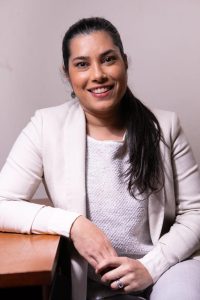
“Having to take care of my children on my own was extremely difficult after I left my ex-abuser. There were times I was facing poverty and was homeless for a brief period. Finding a new support system was very important to my survival so that I could move on from the abuse and re-establish a new life. Even though it was difficult, raising my kids kept me grounded and motivated me to rebuild a better life.
…
Ultimately, children’s autonomy and ability to thrive and pursue their own goals must be protected by the law… please write to your legislators and demand change. Anyone can become an advocate and a voice for change. You may help a young girl who doesn’t have a voice. I hope that you, the reader, will become engaged, and share this story and all the stories like it and continue to raise awareness of this issue.”
Read Sara’s full story here.
Amanda Parker, AHA Foundation Senior Director and anti-FGM activist
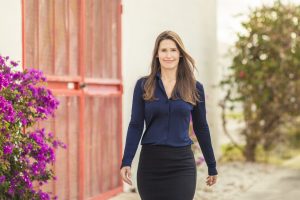
“I’ve always been one who gets a little frustrated when people say, ‘as the parent of a daughter, this is important to me,’ because I believe that women’s rights should be important to everyone simply because we are all humans; we should care about the rights and dignity of fellow people, full stop. I still absolutely believe that. But after becoming the mom of a daughter, I look at her and I now understand why people say that. I have to fight for this world to be equal for this tiny human. The world I want for her is one where she is valued as she is, one where she is safe from persecution, one where her sisters both here in the U.S. and around the world are equally safe and valued.
I only realized it in hindsight, but my mom absolutely influenced my passion for women’s rights. Thinking back to my childhood, I have vivid memories of my mom talking to my second-grade teacher about how I would ‘break the glass ceiling’ and that I would ‘get the Equal Rights Amendment passed.’ I never thought of my mom as a feminist, but she certainly was. She imagined for me a home where I am equal under the eyes of the law and in practice. What my mom wanted for me is what I now fight for for my daughter.”
Read the full interview with Amanda here.
Natalie Arroyo, AHA Foundation Marketing Manager
“Last year, I became a mother and this only deepened my commitment to ending abuses against children. I can’t imagine my child going through the same things that so many survivors have. Having a child of my own brings it that much closer to home for me, and only inspires me to fight even harder.”
Read the full interview with Natalie here.
Yasmine Mohammed, ex-Muslim, forced marriage survivor, and activist from Canada
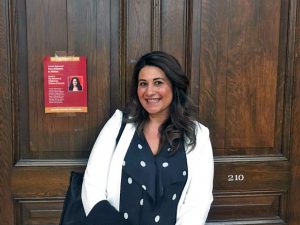 “My only reprieve was to imagine that this monster [her abusive husband] might give me a little girl. That would be the silver lining to this life of Hell. I would have a little girl to love and to love me and she will be my best friend.
“My only reprieve was to imagine that this monster [her abusive husband] might give me a little girl. That would be the silver lining to this life of Hell. I would have a little girl to love and to love me and she will be my best friend.
Soon, I was pregnant, and shortly after my 22nd birthday, I was holding my very own little miracle. I loved her with more love than I ever knew was possible. She was everything to me.
…
Then I understood. [My husband] was talking about female genital mutilation (FGM). He wanted to mutilate my little miracle. I responded with a defensive anger I didn’t know I still had in me. I would have jumped out the window with my baby to get her away from him.
…
That’s the moment I decided that I would get my daughter out before they had the chance.
…
Now, as a free woman, my advice to any girls under threat of being forced into a marriage is: don’t give up. In my day there was no social media. There was no one to reach out to. Today, you are privileged to have a network as vast as the planet itself.”
Read Yasmine’s full story here.
Ruth Trotter, mother of a man whose girlfriend and her sister were murdered by their father in an act of honor killing from Texas
“I knew Amina [Said] and Sarah [Said] were constantly under persecution, bondage, and torture, but I didn’t know it had this name: honor violence. I also didn’t know the moment Amina and [her son] Joseph fell in love that we, too, were now part of honor violence. Regrettably, four years later, when Amina and Sarah were executed, I learned the term honor killing, which is now a part of me forever.
…
[To girls in similar positions as Amina and Sarah]: You are a BRAVE and STRONG young girl or woman who is WORTHY of LIFE!
You are not alone. There is help and hope waiting for you. Honor violence awareness is being brought to the surface but we still have a way to go. Once you cry out for help and you feel no one is listening or understands, the most important thing at that moment is to get yourself to a safe place. Violence is violence and abuse is abuse. Call it what it is so you’re taken to safety. Once you’re in a safe place, immediately contact an agency like the AHA Foundation or others that are specific to honor crimes so they can guide you to safety. I may never know you but you are all Aminas and Sarahs to me. I think about your safety and your life every day of mine.”
Read the full interview with Ruth here.
Soraya Deen, Muslim reformer and women’s rights activist originally from Sri Lanka
“We need to preach to young girls and women about a new possibility. Men must know what role they must play in that new possibility. A possibility of an Islam without patriarchy and misogyny.
A few years ago I was in Paris with my 13-year-old daughter. Upon entry to the mosque, I was forced to wear a garb handed over by a man at the entrance. Later we were directed to a dimly lit basement-like area for prayer. Meanwhile, the men prayed on the well-decorated, spacious upper floors. This must change. How can I teach my daughter to be proud of her community, or the place we go to pray, if we are treated this way at our mosques? The marginalization of women in mosques is prevalent: they often have to use side entrances to enter the mosques. There has been a little progress, but far from enough.
…
[We must] build women’s movements. For centuries men with beards have failed us. I believe that we must deconstruct received theologies and deconstruct the supremacy of patriarchy. Education is critical.
…
I am very hopeful for the future. Some of the most important social movements in the past were headed by women. Women are coming together, building solidarity. Technology is on our side. News travels fast. People are more aware. So I keep moving forward, in the belief that one day, we will succeed and justice will prevail.”
Read the full interview with Soraya here.


